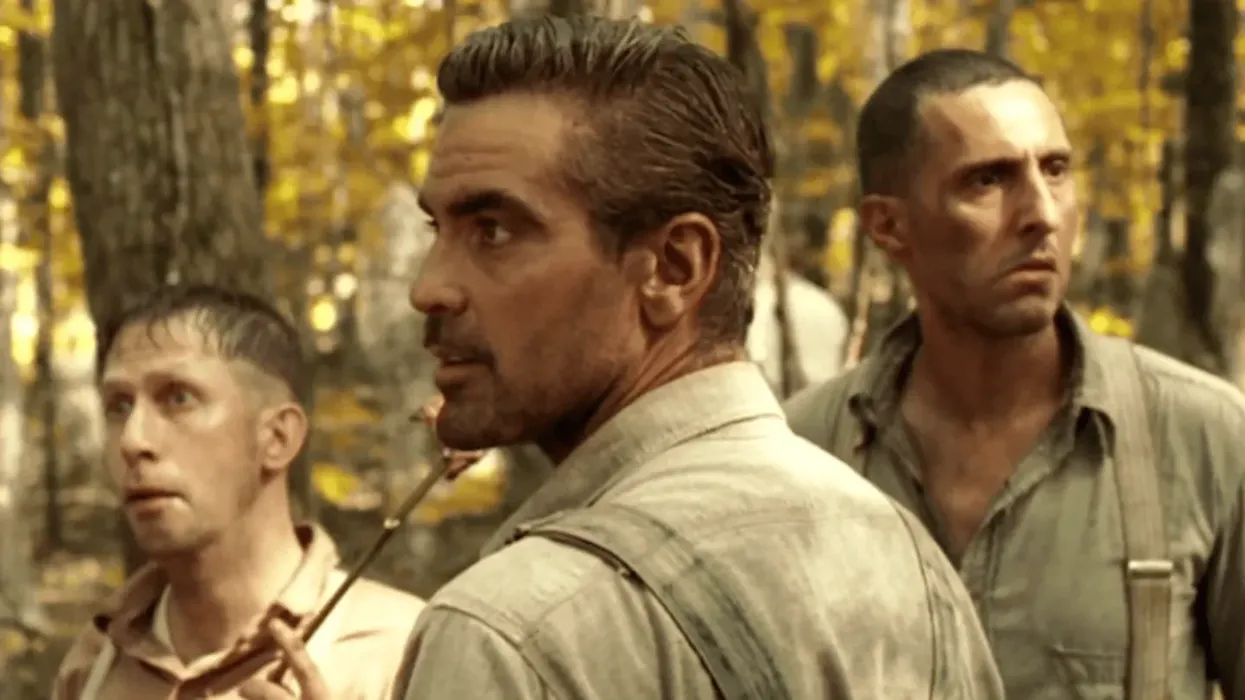What Is Tautology? Definition and Examples
It's something so nice, you said it twice.

'O Brother Where Art Thou'
We're back on our grand exploration into the literary devices that have built our understanding of storytelling and expression over thousands of years.
Today, it's tautology, which you may have seen before and not recognized. It's a phrase or sentence in a film script that seems to say the same thing twice.
Today, we're going to go over the word, and its definition and look at how it fits into film and TV. Sound good?
Let's go.
Tautologywww.youtube.com
Tautology Definition
A tautology is a statement in which the same thing is said twice, often in different words. It's a form of redundancy.
In everyday speech and writing, tautologies are often considered a flaw because they are redundant and don't add new information. But like many “mistakes” in the world of art and storytelling, they can be repurposed to serve a narrative or stylistic goal.
Tautology Examples
 'Forrest Gump'
'Forrest Gump'Credit: Paramount Pictures
If you want to learn about this definition, you have to see it in action.
- For Emphasis: Sometimes, a tautology can be used to emphasize a point. In Forrest Gump, Forrest says, "My momma always said life was like a box of chocolates. You never know what you're gonna get." The second sentence is tautological because it's implied in the first. But it drives home the unpredictability of life.
- Character Development: Tautologies can hint at a character's personality, background, or mental state. If a character consistently speaks in tautologies, it might suggest that they are overly cautious, not very bright, or perhaps being deliberately redundant for comedic effect.
- Comic Relief: Tautologies can be intentionally funny. Consider the comedic effect like “I’m seeing double, four Krustys!” from The Simpsons.
- Dramatic Irony: Filmmakers can use tautologies to create dramatic irony, where the audience knows something the characters don’t. A character might say, “I'm going out and when I return, I'll come back.” The redundancy underscores their nervousness or obliviousness, and the audience, in on the "joke", feels a closer connection to the narrative.
How Do Filmmakers Use Tautology

'The Simpsons'
Credit: Fox
While tautologies can be a powerful tool in filmmaking, like any tool, they must be used judiciously. Overuse can make dialogue feel lazy or uninspired.
Here are some tips for using them effectively:
- Be Intentional: Make sure there's a reason for including a tautology. Is it emphasizing a point, adding humor, or developing a character?
- Mix it Up: Don't rely solely on tautologies for humor or emphasis. It's one of many devices in your storytelling toolbox.
- Read it Aloud: Sometimes what looks good on paper doesn’t sound right when spoken. Always read dialogue aloud to ensure it sounds natural and the tautology serves its purpose.
Tautology feels like something the Coens and Tarantino use a lot. The next time you're watching their films, see if you can recognize it.
Cinema provides a unique space where these redundancies can come to life in fresh and engaging ways.
Remember, rules are meant to be understood and then, when needed, broken. Just ensure every break serves a purpose.
Go get writing.
















